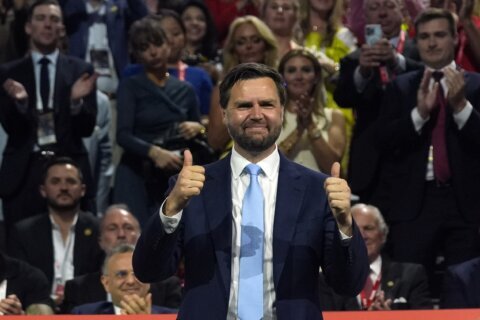An investigator backed the World Anti-Doping Agency’s handling of a doping case involving 23 Chinese swimmers, while also publishing notes highlighting WADA’s own science director expressing doubts about China’s explanation of how the athletes had been subject to contamination.
WADA released an interim report Tuesday from the Swiss prosecutor it chose for the probe, Eric Cottier, who concluded he found no evidence that WADA showed favoritism toward China in its handling of the case.
Cottier also said WADA made a “reasonable” decision by taking the word of authorities in China who determined the swimmers ingested a banned heart medication, residue of which was found in a kitchen at the hotel where the athletes were staying.
Eleven of the swimmers who tested positive were allowed to keep competing after WADA chose not to pursue the case in 2021 are now slated to swim at the Paris Olympics starting later this month.
In an annex to his interim report, Cottier described WADA chief scientist Olivier Rabin as unable to exclude the contamination scenario, and so faced with “no other solution than to accept it, even if he continued to have doubts about the reality of contamination as described by the Chinese authorities.”
Any doubts he had, Rabin said in a news release accompanying the report, were not enough to give WADA a reasonable chance at winning an appeal of the Chinese decision.
“In this case, despite our skepticism, a thorough review of all the verifiable facts of the case revealed no evidence to challenge the contamination scenario,” Rabin said. “Rather, all the available evidence pointed towards no-fault contamination versus intentional ingestion.”
WADA President Witold Banka said Cottier’s probe confirmed “that there was no impropriety connected to WADA’s handling of the case. He said the agency’s next step would be to meet with external legal counsel to see “what measures can be taken against those that have made untrue and potentially defamatory allegations.”
“These allegations have been extremely damaging to WADA’s reputation and to the confidence and trust that athletes and other stakeholders have in the Agency and in the global anti-doping system,” Banka said.
In April, German broadcaster ARD and New York Times revealed the existence of the cases and how they were handled.
That led WADA to appoint Cottier to explore two questions: Was there any bias toward China that led WADA to not pursue the case, and was WADA’s decision not to appeal Chinese authorities’ explanation of contamination a reasonable one?
Critics called the investigation unreliable because its focus was too narrow and it was being conducted by WADA’s handpicked investigator.
One of WADA’s biggest critics, U.S. Anti-Doping Agency CEO Travis Tygart, said while the Cottier report did answer some questions, many others remained — namely, why WADA didn’t open its own investigation about the basic facts of the case instead of simply taking China’s word for it on the source of the contamination.
“From the beginning, our goal has been uncovering the truth and the facts of this situation on behalf of clean athletes,” Tygart said. “Until WADA leadership shares that goal and stops spewing vitriol at any voice of dissent, there will be no trust in the global anti-doping system.”
Cottier is due to deliver a full report later this year that will contain recommendations about WADA procedures and the world anti-doping code.
___
AP Summer Olympics: https://apnews.com/hub/2024-paris-olympic-games
Copyright © 2024 The Associated Press. All rights reserved. This material may not be published, broadcast, written or redistributed.







